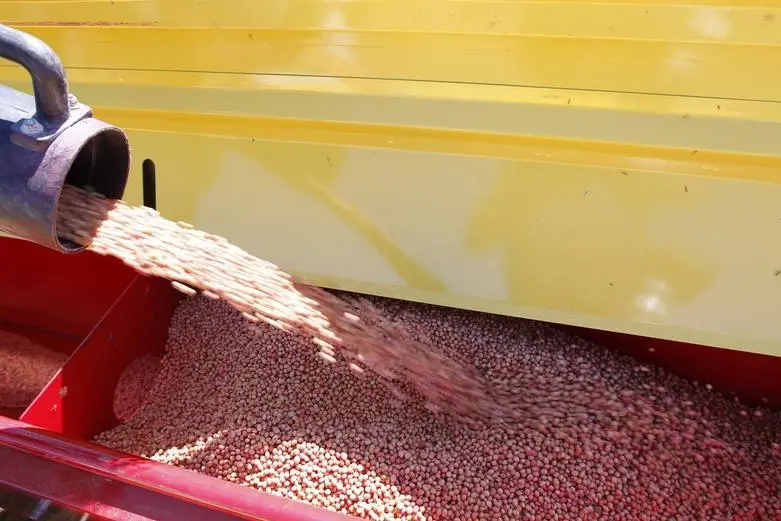PHOTO
SINGAPORE: Chicago soybeans slid on Friday, with prices under pressure from expectations of higher world supplies, even as forecasters reduced their production estimates for top exporter Brazil.
Corn eased, with the market poised for a second weekly loss, while wheat firmed, although prices were set to end the week in negative territory.
"The USDA's (U.S. Department of Agriculture) latest WASDE report was relatively bearish for grains," ING said in a note.
"For the global market, the USDA increased 2023/24 ending stock estimates from 114.6 million tons to 116 million tons due to rising beginning stocks."
The most-active soybean contract on the Chicago Board of Trade (CBOT) fell 0.1% to $11.92 a bushel, as of 0231 GMT. The market, which dropped this week to its lowest level since December 2020, has climbed 0.3% so far this week.
Corn was down 0.4% at $4.31-3/4 a bushel and wheat added 0.3% to $5.90 a bushel. For the week, corn is down 2.5%, while wheat has lost 1.7%.
The soybean market is facing headwinds amid abundant world supplies and slowing demand from top importer China, offsetting the impact of lower output expected in Brazil, the world's No. 1 exporter.
The U.S. Department of Agriculture pegged Brazilian soy production at 156 million metric tons in a monthly report, down from 157 million tons in January, following unfavourable hot, dry weather. Analysts on average expected 153.15 million tons, according to a Reuters survey.
Brazilian crop agency Conab lowered Brazil's 2023/24 soybean crop projection to 149.4 million metric tons from 155.2 million tons in a January report.
The country's corn production was pegged at 113.7 million tons, below January's 117.6 million tons.
The La Nina weather pattern characterized by unusually cold temperatures in the Pacific Ocean could emerge in the second half of 2024, following a strong El Nino year, a U.S. government weather forecaster said on Thursday.
Commodity funds were net sellers of CBOT corn, soybean, soymeal and wheat futures contracts on Thursday, and net buyers of soyoil, traders said. (Reporting by Naveen Thukral; Editing by Sherry Jacob-Phillips and Rashmi Aich)





















